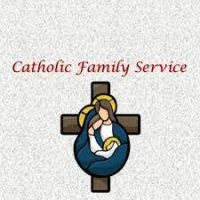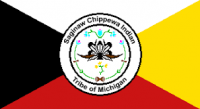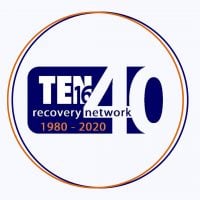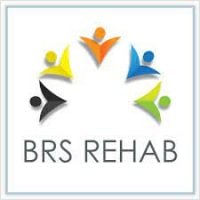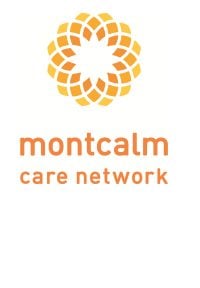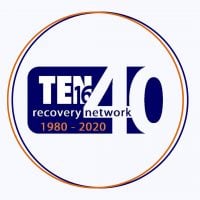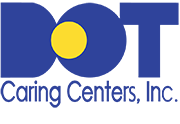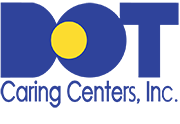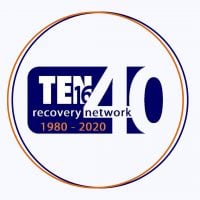Catholic Family Services - Mount Pleasant
Drug Rehab Center in Mount Pleasant, Michigan
Catholic Family Services in Mount Pleasant, Michigan provides mental health and addiction services with a focus on evidence-based practices and a holistic approach, offering a variety of counseling and therapy options, relapse prevention services, weekly group meetings, and is accredited by the Joint Commission and licensed by the Michigan Department of Health and Human Services.
About This Michigan Facility
Catholic Family Services (CFS) is a nonprofit agency located in Mount Pleasant, Michigan, dedicated to providing comprehensive mental health and addiction services to individuals, couples, and families in need. Founded on the principles of compassion and understanding, CFS has been serving the community for over three decades.
• Highly trained professionals offer evidence-based practices and a holistic approach to treatment
• Wide range of services including counseling, therapy, assessments, and case management
• Specializes in addressing addiction, substance abuse, trauma, family issues, and court-mandated services
• Hosts weekly Alcoholics Anonymous and Narcotics Anonymous group meetings
CFS is accredited by the Joint Commission, nationally recognized for its strict adherence to the highest standards of quality and safety in health care. The agency is also a licensed provider of substance use disorder services by the Michigan Department of Health and Human Services.
At CFS, individuals struggling with addiction and substance abuse can find support through traditional counseling, cognitive-behavioral therapy, grief counseling, anger management, and mindfulness techniques. The agency also offers relapse prevention services and provides assessments and referrals to clients and their family members.
Genders
Ages
Modality
Additional
Accreditations

CARF
The Commission on Accreditation of Rehabilitation Facilities (CARF) is a non-profit organization that specifically accredits rehab organizations. Founded in 1966, CARF's, mission is to help service providers like rehab facilities maintain high standards of care.
Conditions and Issues Treated
Dual Diagnosis refers to someone who is both dealing with addiction and another mental health issue.
There are different kinds of Dual Diagnosis: A person who simultaneously experiences both a mental illness and an addiction disorder. Or, a person who experiences one or more coexisting (simultaneous) mental health conditions in addition to a primary substance use disorder.
Some conditions that commonly co-occur with addiction include:
- Personality Disorders (Borderline, Narcissistic)
- Mood Disorders (Bipolar Disorder, Depression, Anxiety Disorder)
- PTSD (Post Traumatic Stress Disorder), OCD (Obsessive Compulsive Disorder), ADHD (Attention Deficit Hyperactivity Disorder)
- Schizophrenia, Psychosis, Hallucinations, Delusions
Levels of Care Offered at Catholic Family Services - Mount Pleasant
This center offers a variety of custom treatment tailored to individual recovery. Currently available are Dual-Diagnosis, Outpatient, with additional therapies available as listed below.
Outpatient treatment programs provide drug and alcohol addiction treatment through individual sessions with a counselor, group therapy, 12-step meetings, and other activities to help individuals gain sober living skills. Most programs are designed for those individuals who have completed a medically supervised detoxification program and provide opportunities for clients to begin the process of early recovery.
Outpatient programs also offer a level of medical support as needed and psychological backing through therapy. Clients are encouraged to live at home, though there may be some flexibility regarding this requirement based on the circumstances and needs of each patient.
Outpatient treatment is perhaps the most common type of dual diagnosis program available. It does not pose a significant financial burden on patients. However, it is essential to note that outpatient treatment does not provide the support and supervision given in residential programs. Some addicts may need this level of support to maintain their sobriety.
Therapies & Programs
Therapy sessions focused on the individual addict can provide much-needed guidance as they work toward overcoming their addiction. These types of sessions typically involve guidance from a therapist, who will help addicts identify and process their feelings and cravings.
During these sessions, addicts may develop plans for coping with the triggers that typically lead to relapse and learn how to avoid those triggers during their recovery process.
If you are looking for drug recovery, couples therapy can be a great option. This type of therapy can help rebuild trust and joy in relationships that may have been damaged by addiction. It can also help reduce the dysfunctional behavior in a relationship that may trigger addiction. A patient’s partner will be involved in the process. They can also benefit from therapy, especially if they are trying to live with an addict.
The main goal of family therapy for drug addiction is to create an environment where communication can occur without judgment, hostility, or blame that often occurs within a family.
Family therapy is a type of group problem-solving that aims to improve communication and relationships between the patient, their family, and sometimes friends. The therapist is with the family as they learn to communicate with each other differently, especially with the addict when s/he is using.
The family can learn to reduce their enabling behavior or rally together and support each other during tough times. The patient also learns how to deal with their addiction and maintain sobriety while interacting with the family.
Different types of addiction treatment services are available. Within this article, group therapy is of interest due to its high success rate compared to individual therapy. Group therapy settings are beneficial because they allow recovering addicts to build a strong support network.
Benefits of group therapy are:
- Reduces feelings of isolation
- Immediate access to social support in the form of fellow addicts in recovery
- Lowers risk of relapse
- Increases rate of sobriety
- Builds coping skills that can be applied to everyday life
Dialectical Behavior Therapy is a cognitive-behavioral therapy that helps addicts balance their thoughts and emotions to change their behavior. It was designed for those vulnerable to self-harm and suicidal thoughts and aims to help patients understand the connection between their feelings, emotions, and behaviors. It is effective for those whose addictions and behaviors stem from severe mental health issues.
Cognitive Behavioral Therapy (CBT) is used by drug treatment centers to help addicts comprehend the causes of their substance abuse and the consequences that follow. Through CBT, clients learn to recognize and avoid high-risk situations and cope with challenging situations when they arise.
CBT treatment often includes a combination of individual therapy, group therapy, lectures, and other activities. The treatment’s goal is to help addicts gain self-control and maintain abstinence from drugs and alcohol over the long term so that an addict can get sober and lead a more productive life.
CBT is particularly effective in helping people overcome their drug problems, especially people whose drug abuse is motivated by self-defeating beliefs and emotions.
Payment Options Accepted
For specific insurance or payment methods please contact us.
Is your insurance accepted?
Ask an expert, call (888) 674-0062
Additional Details
Specifics, location, and helpful extra information.
Mount Pleasant, Michigan 48858 Phone Number(989) 773-9328 Meta DetailsUpdated April 15, 2024
Staff Verified
Patient Reviews
There are no reviews yet. Be the first one to write one.
Mount Pleasant, Michigan Addiction Information
Michigan has the second-highest rate of drug and alcohol abuse in the nation. Heroin is linked to more than 50% of the state's hepatitis C cases. Marijuana is the drug most often associated with crimes in Michigan, followed by methamphetamines. Opioids alone are responsible for almost 20% of all drug overdose deaths in Michigan.
The impact of drug addiction and abuse on the community in Mount Pleasant, Michigan, is significant. There were 584 reported drug abuse cases in Mount Pleasant in 2016, which represents a rate of 1,722 cases per 100,000 residents. According to NDIC, heroin is the most commonly abused drug in the city. There are many drug treatment centers in Mount Pleasant so you will be able to find one that fits your needs.
Treatment in Nearby Cities
- Alpena, MI (120.6 mi.)
- Kingsford, MI (221.8 mi.)
- Bessemer, MI (325.6 mi.)
- Saint Joseph, MI (136.0 mi.)
- Wakefield, MI (321.0 mi.)
Centers near Catholic Family Services - Mount Pleasant
The facility name, logo and brand are the property and registered trademarks of Catholic Family Services - Mount Pleasant, and are being used for identification and informational purposes only. Use of these names, logos and brands shall not imply endorsement. RehabNow.org is not affiliated with or sponsored by Catholic Family Services - Mount Pleasant.
